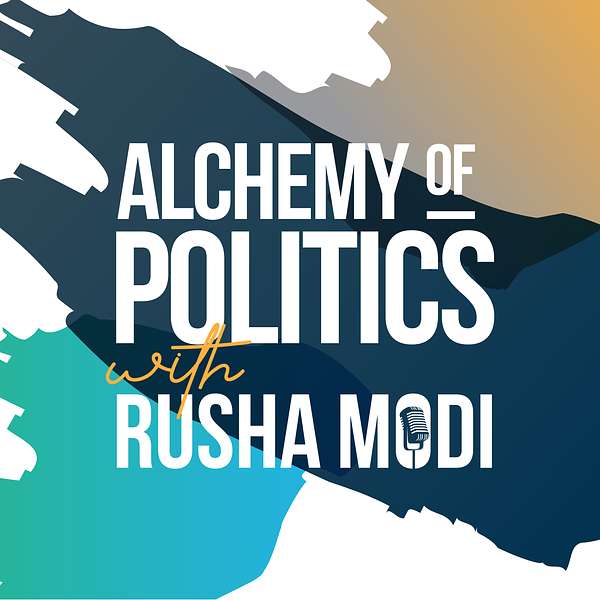
The Tomorrow List with Rusha Modi
Our national politics are crazy right now aren’t they? Haven’t they always been? It all seems like a Jenga game about to topple at any moment and the piece about to be removed by the media is sanity. If you’re like me, then we’re both fed up with the hype that passes for hope. Our response is the Tomorrow List with Rusha Modi. Beyond clickbait headlines and recycled left-right talking points are powerful unexplored ideas to level up our communities, country and planet. We traffic in solutions arbitrage: real policies and innovations that can expand the edge of what’s possible for our country. We are unafraid to take big swings at the hard policy and social questions confronting the US. Our guests will be a provocative mash-up of intellectuals, creative renegades, and leaders. Listen in and become more than just “cocktail party” smart. Set fire to the political status quo. Together, we can extend the half-life of hope one citizen, one story, one possibility at a time. And that’s not crazy at all.
The Tomorrow List with Rusha Modi
Ep. 22 - Catalyzing Human Connection Social Reform through Empathy with Pete Bombaci
In this episode, Rusha interviews Pete Bombaci, Pete is the head of a non-profit from Canada that seeks to connect people to people. His organization has been a major voice in the battle against isolation, alienation, tribalization, animosity, and the numerous other ways we all “bowl alone.” Listen as Pete talks about the social implications of mistrust and distrust of each other, and how kindness, connection, and community can rehabilitate the social fabric.
Key Highlights:
[00:01 - 03:27] - Opening segment
Rush introduces Pete Bombaci
Pete emphasizes the importance of human connection, which was highlighted in an op-ed in the New York Times
He discusses how dogs can be a way to reconnect with your neighbors
Humans have been increasingly disconnected from each other due to changes in technology and society
People need to be educated on the importance of human connection
[03:28 - 08:52] – Technology Makes It Harder To Have Authentic Conversations
Pete discusses the importance of relationships, and how technology is changing how we connect
He discusses how technology is making it harder for people to have authentic conversations
Conversation is the key to resolving political differences
[08:53 - 36:00] – The Importance of Human Connection In The Workplace
Pete discusses the American political divide
Human connection movement is aimed at encouraging this type of communication
Corporations play a role in creating social connections in the workplace
It benefits both employees and customers
He advises businesses to advocate for policies that support human connection
[36:01 - 56:14] – Success Depends On The Strength Of The Relationships Between Employees
Pete emphasizes the need for corporations to shift their focus from consumers to the employee
Success of an organization depends on the strength of its relationships between employees
[56:14 – 01:07:58] - Closing Segment
Pete discusses how social health is key to success in the modern era
How can people connect with general learning about its organization and get involved
How to connect with Pete Bombaci at Genwell Project
CRAVING MORE?
What are you waiting for? Head to Alchemy of Politics; join the conversation and start a change reaction! Follow us on Instagram and Tik Tok.
You can connect with Dr. Rusha on LinkedIn, Instagram, Facebook, and Twitter.
Thanks for tuning in! If you liked my show, LEAVE A 5-STAR REVIEW, like, and subscribe!
Share it with your friends, and family, and spark a conversation. Contribute, comment, and disagree.
Remember: Solutions, not shouting.
Tweetable Quotes:
Pete Bombaci - "I never even recognized the power of schools to bring people together until the pandemic forced them all to come home. That socialization that happens at school, and we know that leads to brain development, we know that that's educational success, cultural success."
Pete Bombaci - "Spending time with other people because it gets us out of here, when we're not very kind to ourselves, helps us find solutions, and it helps us build resilience."
Rusha Modi - “It seems to be that the less contact that we have, the harder it is to not only converse, but have an ability to empathize with people and I think technology is making that problem even worse.”